#samudzi
Explore tagged Tumblr posts
Text
Writers Against the War on Gaza (WAWOG) is an ad hoc coalition committed to solidarity and the horizon of liberation for the Palestinian people. Drawing together writers, editors, and other culture workers, WAWOG hopes to provide ongoing infrastructure for cultural organizing in response to the war. This project is modeled on American Writers Against the War in Vietnam, an organization founded in 1965.
Statement of Solidarity
October 26, 2023
Israel’s war against Gaza is an attempt to conduct genocide against the Palestinian people. This war did not begin on October 7th. However, in the last 19 days, the Israeli military has killed over 6,500 Palestinians, including more than 2,500 children, and wounded over 17,000. Gaza is the world’s largest open-air prison: its 2 million residents—a majority of whom are refugees, descendants of those whose land was stolen in 1948—have been deprived of basic human rights since the blockade in 2006. We share the assertions of human rights groups, scholars, and, above all, everyday Palestinians: Israel is an apartheid state, designed to privilege Jewish citizens at the expense of Palestinians, heedless of the many Jewish people, both in Israel and across the diaspora, who oppose their own conscription in an ethno-nationalist project.
We come together as writers, journalists, academics, artists, and other culture workers to express our solidarity with the people of Palestine. We stand with their anticolonial struggle for freedom and for self-determination, and with their right to resist occupation. We stand firmly by Gaza’s people, victims of a genocidal war the United States government continues to fund and arm with military aid—a crisis compounded by the illegal settlement and dispossession of the West Bank and the subjugation of Palestinians within the state of Israel.
We stand in opposition to the silencing of dissent and to racist and revisionist media cycles, further perpetuated by Israel’s attempts to bar reporting in Gaza, where journalists have been both denied entry and targeted by Israeli forces. At least 24 journalists in Gaza have now been killed. Internationally, writers and cultural workers have faced severe harassment, workplace retribution, and job loss for expressing solidarity with Palestine, whether by stating facts about their continued occupation, or for amplifying the voices of others. These are instances that mark severe incursions against supposed speech protections. Specious charges of antisemitism are leveled against Zionism’s critics; political repression has been particularly aggressive against the free speech of Muslim, Arab, and Black people living in the US and across the globe. As was the case following the September 11th attacks, Islamophobic political fervor and the widespread circulation of unsubstantiated claims has galvanized a US-led coalition of military support for a brutal campaign of violence.
What can we do to intervene against Israel’s eliminationist assault on the Palestinian people? Words alone cannot stop the onslaught of devastation of Palestinian homes and lives, backed shamelessly and without hesitation by the entire axis of Western power. At the same time, we must reckon with the role words and images play in the war on Gaza and the ferocious support they have engendered: Israel’s defense minister announced the siege as a fight against “human animals”; even as we learned that Israel had rained bombs down on densely populated urban neighborhoods and deployed white phosphorus in Gaza City, the New York Times editorial board wrote that “what Israel is fighting to defend is a society that values human life and the rule of law”; establishment media outlets continue to describe Hamas’s attack on Israel as “unprovoked.” Writers Against the War on Gaza rejects this perversion of meaning, wherein a nuclear state can declare itself a victim in perpetuity while openly enacting genocide. We condemn those in our industries who continue to enable apartheid and genocide. We cannot write a free Palestine into existence, buttogether we must do all we possibly can to reject narratives that soothe Western complicity in ethnic cleansing.
We act alongside other writers, scholars, and artists who have expressed solidarity with the Palestinian cause, drawing inspiration from the Palestinian spirit of sumud, steadfastness, and resistance. Since 2004, the Palestinian Campaign for the Academic and Cultural Boycott of Israel (PACBI) has advocated for organizations to join a boycott of institutions representing the Israeli state or cultural institutions complicit with its apartheid regime. We call on all our colleagues working in cultural institutions to endorse that boycott. And we invite writers, editors, journalists, scholars, artists, musicians, actors, and anyone in creative and academic work to sign this statement. Join us in building a new cultural front for a free Palestine.
Signed,
WAWOG Interim Organizing Committee
Hannah Black
Ari Brostoff (Senior Editor, Jewish Currents)
Elena Comay del Junco
Kyle Dacuyan (Executive Director, Poetry Project)
Kay Gabriel (Editorial Director, Poetry Project)
Kaleem Hawa
E. Tammy Kim
Shiv Kotecha
Wendy Lotterman (Associate Editor, Parapraxis)
Muna Mire
Perwana Nazif
Brendan O'Connor
Alex Press (Staff Writer, Jacobin)
Sarah Nicole Prickett
Dylan Saba
Zoé Samudzi (Associate Editor, Parapraxis)
Jasmine Sanders
Claire Schwartz (Culture Editor, Jewish Currents)
Janique Vigier
Harron Walker
Chloe Watlington
Gabriel Winant (Department of History, University of Chicago)
Audrey Wollen
Hannah Zeavin (Founding Editor, Parapraxis)
Signed, In Solidarity
Fatimah Warner (Noname)
Saul Williams
Susan Sarandon
Janeane Garofalo
Gael García Bernal
Danez Smith
Ocean Vuong
Aria Aber
Saidiya Hartman
China Miéville
+ full list here
#writers against the war on gaza#wawog#free palestine#this letter is the one#you know how i encountered this when you see one of the people who signed#text#noname#susan sarandon#saul williams#gael garcia bernal#ocean vuong#joel kim booster#what a pleasant surprise#patti harrison#fariha roisin#zoe samudzi
237 notes
·
View notes
Text
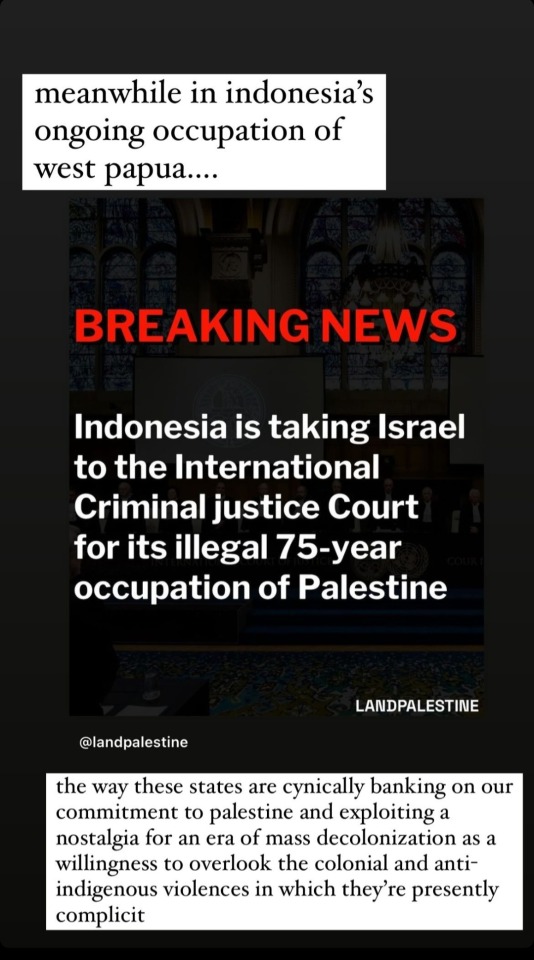
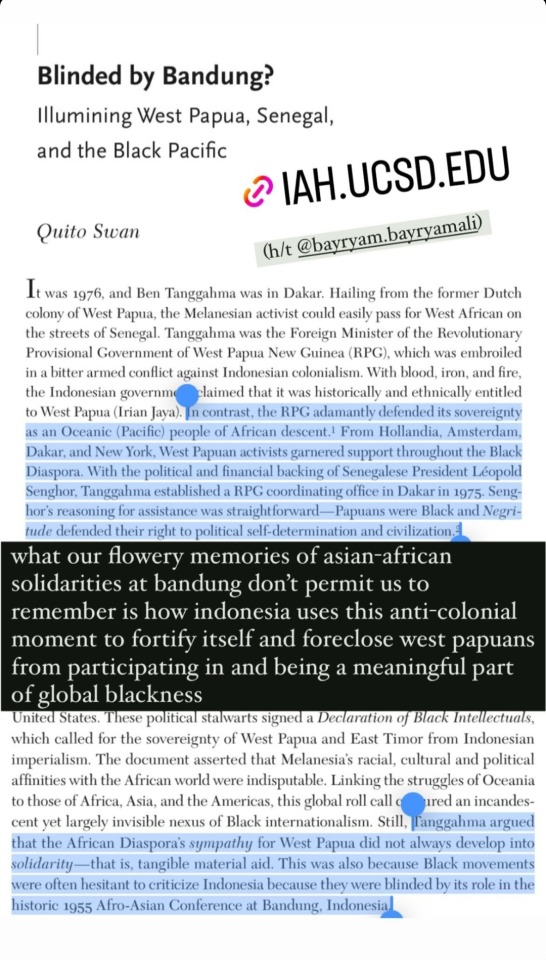
deeply appreciative of zoé samudzi's analysis and critique in this moment, im grateful that she remains critical and unimpressed w the hypocrisy of so many governments--from indonesia to namibia to south africa, even while acknowledging what these legal movements against israel can accomplish, and I'm grateful for her skill in parsing out and articulating these layers of politics, power and narrative,, I continue to learn and download all the articles she shares (screenshots from her instagram story today @/babywasu)
8 notes
·
View notes
Text
Revolutionary literature and dictator literature
Oasis Nadrama, 20/07/2024 '
REVOLUTIONARY LITERATURE
In 2019, the now-X-deactivated FeralCherub posted this reflection:
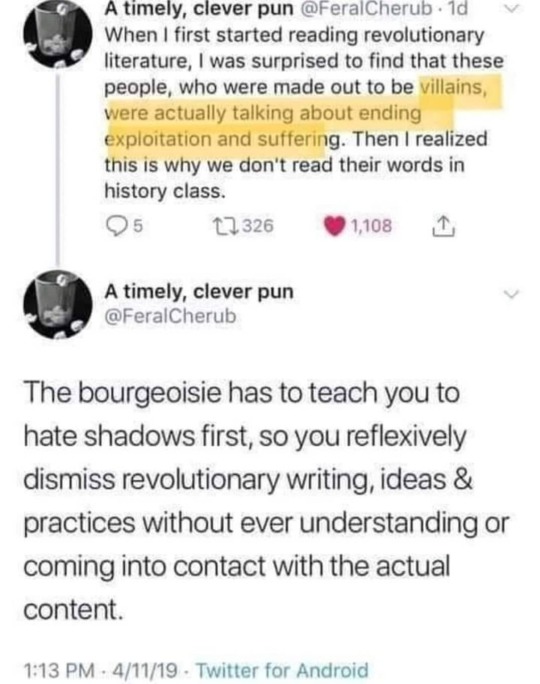
It is very true. There is an entire world of fundamental revolutionary literature out there, and we should all discover it and learn from it.
Read Zoé Samudzi, He Zhen, Abdullah Öcalan, Mikhail Bakunin, Pyotr Kropotkin, Rauna Kuokkanen, David Graeber, Louise Michel, Emma Goldman, Paulo Freire, Peter Gelderloos, Claude Cahun and Kanno Sugako! And so many others!
Dive into Queering Anarchism, Queer Ultra Violence, How Nonviolence Protects the State, Anarcho-Blackness, Antifa: The Anti-Fascist Handbook, Feminism for the 99%: A Manifesto! Look into Anarchy Works and all of the Anarchist Library!
'
DICTATOR LITERATURE
The caveat is that the argument "Don't be afraid of revolutionary literature" is often used by tankies to pass the words of tyrants as revolutionary literature.
Tankies/"authoritarian left" will tell you to read Lenin, Trotsky, Mao and Stalin, disguising the legitimate refusal of dictatorships, purges, gulags, death penalty etc as capitalist/bourgeois/fed propaganda... That's part of THEIR propaganda.
Dictators do not deserve for anyone to listen to them.
Useful resources about this kind of ideology:
Tankies and the Left-Unity Scam
Always Against the Tanks
A Fresh Look at Lenin
So yeah, let's not be afraid to read revolutionary literature...
However, dictators, logically enough, do not write revolutionary literature. They write coup literature, state capitalism apologetics literature, dictatorship apologetics literature.
You wouldn't read Elon Musk's reflections on anticapitalism. Why would you read Pol Pot's reflections on government?
Let's be cautious of the words we read and the significant political figures we are invited to respect.
'
#politics#tankies#dictatorship#dictators#state capitalism#propaganda#reblogging texts#various articles
1 note
·
View note
Text
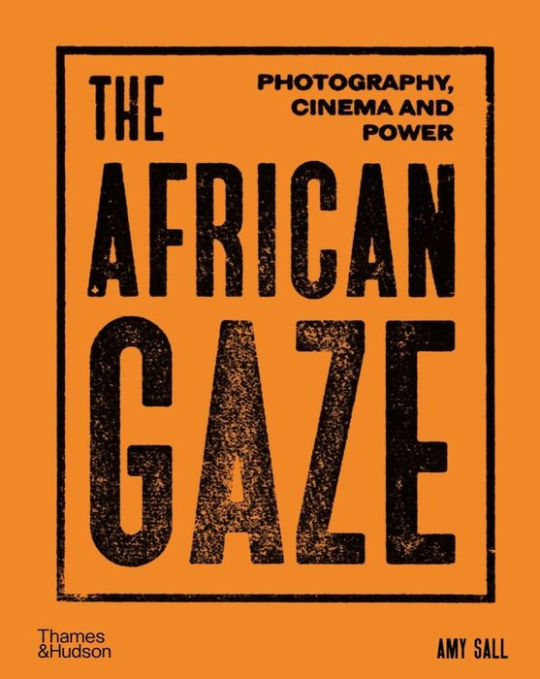
This is a hugely important and timely publication—engagement with Black and African histories is stronger than ever before (and long overdue). The major names of African photography, such as Malick Sidibé, Sanlé Sory, and Seydou Keïta, have become highly collectible in the art market, while African cinema, pioneered by filmmakers such as Ousmane Sembène in 1960s Senegal, is now recognized for its creative innovation and storytelling.
For anyone drawn to African photography and film, this book will provide an exciting and accessible overview.
0 notes
Text
As Black As Resistance - Zoé Samudzi and William C. Anderson

Hello friends,
For this next week’s Black August recommendation, I’m foregrounding conversations around revolutionary Black anarchy as a way of creating conditions for Black liberation: “As Black As Resistance” by Zoé Samudzi and William C. Anderson.
Zoé Samudzi is a writer and doctoral student in Medical Sociology at the University of California, San Francisco. Her research focuses on the scientific logics that produce race and gender, particularly focusing on transgender health and the ways Blackness is constructed.
William C. Anderson is a freelance writer. His work has been published by the Guardian, MTV, and Pitchfork, among others. You can read many of his writings at Truthout or at the Praxis Center for Kalamazoo College, where he's a contributing editor covering race, class, and immigration.
“As Black As Resistance” is a powerful critique of the anti-Black U.S. settler capitalist project, advocating for radical action in order to help Black people become ungovernable under this regime of gratuitous violence. The authors emphasize the importance of grounding current movements in the Black radical tradition to achieve true liberation, and use personal acknowledgments and reflections as clarion calls for Black self-emancipation.
In particular, they ground themselves in a Black Anarchist tradition that also sees the anti-Black settler capitalist state as unable to be reformed, and one which revolutionaries can’t replace since it can’t guarantee Black safety. Instead, learning from various radical Black movements such as the Black Panthers they call for collective self-defense in the face of oppression, as well as building alternative institutions not based on domination, hierarchy, and control.
Their reflections on abolitionism and anarchism are a case in point. Instead of seeing these as negative critiques of the status quo, they’re opportunities to build alternative institutions that affirm Black humanity, Indigenous sovereignty, and liberate all of us from patriarchy, ableism, class society, and other oppressive systems. This is especially prescient during Black August given the reflection time we’re gifted during this time.
I highly recommend y’all read this book, even if you’re not an anarchist you can find some wonderful inspirations in their reflections and it helps sharpen our analysis on what freedom can look like and how to be cautious on not reproducing harm in our quests for change. I know I’ve certainly learned a lot!
#book blog#book review#bookblr#black august#black anarchism#anti blackness#settler colonialism#anarchism#black liberation#indigenous liberation
1 note
·
View note
Photo

Paul Hankar, Musée du Congo, Tervuren, Belgium, n.d. (19th c.)
Via Zoé Samudzi
74 notes
·
View notes
Photo
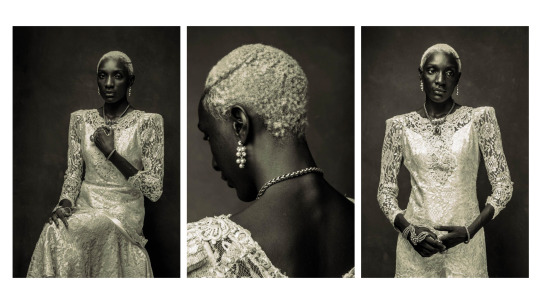
VICE partnered with Fotografiska New York to present New Visions, an exhibition showcasing 14 emerging photographers from around the world. The awesome Zoé Samudzi writes about the work of Lagos, Nigeria-based photographer Noma Osula.
https://www.vice.com/en_us/article/m7qw8v/a-contemporary-take-on-nigerian-family-portraits-from-the-70s?series=erqkqr
98 notes
·
View notes
Photo
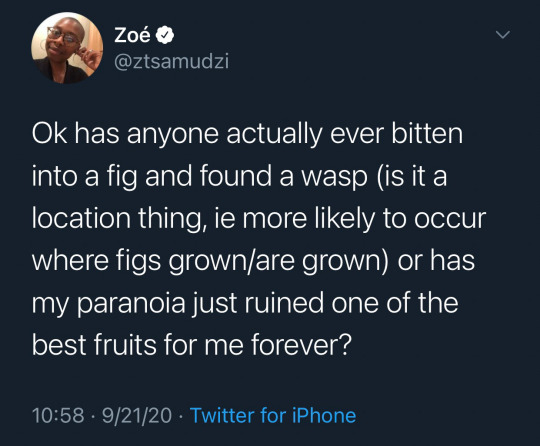
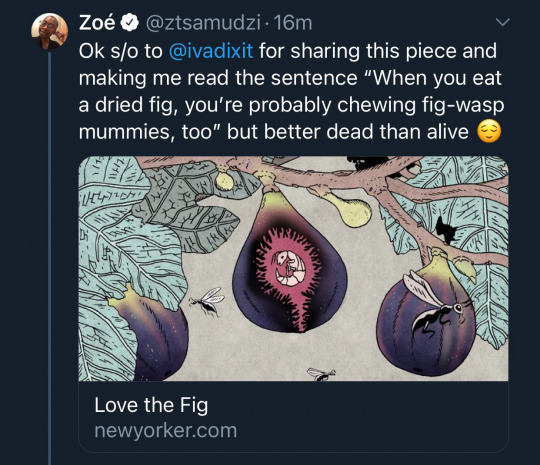
[1308061063003475986]
1 note
·
View note
Text
“Aren’t certain white male longings also self-annihilatory to some extent, because some “self” must be destroyed in order for them to give and receive love as full human beings?”
“Getting Closer” by Zoé Samudzi
2 notes
·
View notes
Text

Citizenship, Expectation and Failure
The emphasis on Puerto Ricans during the aftermath of Hurricane Maria and the other storms often gives special attention to their Americanness. Despite the fact that the entire Caribbean was hit, the question is why US citizens would be neglected in this way. The logic of American exceptionalism should render everyone within the nation’s borders and territories — or colonies — special due to their citizenship within the bounds of empire. But as Zoé Samudzi and I argued in our essay for ROAR Magazine, “The Anarchism Of Blackness,” some US citizens, particularly those of us who are Black, are actually considered extra-state entities.
Though not all Puerto Ricans are Black, from Flint to San Juan we have seen that when certain geographies are associated with Blackness or the non-white Other, their citizenship can always be called into question. As Zoé and I wrote:
Due to this extra-state location, Blackness is, in so many ways, anarchistic. African-Americans, as an ethno-social identity comprised of descendants from enslaved Africans, have innovated new cultures and social organizations much like anarchism would require us to do outside of state structures.
Now, as Puerto Ricans have worked excruciatingly hard with the assistance of other people throughout the US to pick up the slack of the Trump administration, we can see the emerging contours of an anarchistic response brought about by the climate crisis. In the shadow of Hurricane Katrina and Flint, we have had it proven to us one too many times that the white supremacist state does not care about us. The consistent need to crowdfund and organize to fill in the gaps of the lackluster response of federal agencies for the richest nation in the world must call into question the very purposes of the state itself.
Trump’s proposed military budget of $700 billion is more than enough to end poverty in the US, make college free, or provide everyone with universal health care — let alone quickly fix the problems in places like Flint, Puerto Rico, and so on. Instead, people are left to fend for themselves, begging the state to carry out the functions it is supposedly obliged to carry out while depending on celebrities and liberal oligarchs to give like the rest of us. This is clearly absurd, given the endless wealth of the state and the gap between the rich and the poor.
The expectation that lower- and middle-income people will provide aid during crises with greater passion than the super-rich and state agencies, when we do not have nearly as much money as either of them, is absolutely and utterly ridiculous. But it is this utter ridiculousness that is the quintessence of contemporary capitalism. Though capital is unequally distributed, the burden of fixing whatever the problems of the day may be is all ours, while the elite shy away from ever having to pay as large a price as the cost of being poor in a capitalist society.
One of the most despicable examples of these injustices played out in California, where raging wildfires killed dozens of people in 2017, while inmates were being paid $2.00 per hour to risk their lives fighting the fires. Their confinement makes their labor hyper-exploitable and again flattens the burden of problems linked to natural disasters, while the elite who caused the problems remain unfazed in their chase to destroy the planet for profit. In Texas, inmates raised about $44,000 to aid those affected by Hurricanes Katrina and Rita. After Hurricane Harvey, inmates remembered previous fundraising efforts and requested officials to restart a program that allows them to donate their commissary for relief purposes. After just one month, 6,663 inmates had donated $53,863 for Hurricane Harvey relief from the usually very small commissary accounts that they maintain (often $5.00 or less depending on the person).
#climate crisis#green anarchism#autonomous zones#autonomy#anarchism#revolution#ecology#climate change#resistance#community building#practical anarchy#practical anarchism#anarchist society#practical#daily posts#communism#anti capitalist#anti capitalism#late stage capitalism#organization#grassroots#grass roots#anarchists#libraries#leftism#social issues#economy#economics#anarchy works#environmentalism
4 notes
·
View notes
Text
"While museums have claimed an investment in “diversity and inclusion” as of late, this claim has really only translated into a fetishization of particular kinds of Black expression, falling painfully short of more far-reaching engagements of and with race. What lingered through the institutions’ inability to contend with simultaneous anti-Black and antisemitic terror vis-à-vis the KKK was a hackneyed deployment of platitudes that simply translated the urgent stakes of Guston’s mid-century challenges to whiteness and assimilability into palatable and inoffensive social justice museumspeak."
" (...) the report disturbingly notes that “the top five Black American artists at auction account for 83.5 percent of the total market for all Black American artists.” Just three of the top 20 artists are women: once again, Mehretu, Crosby, and Thomas. And if we excise the late Jean-Michel Basquiat, the unsurprising and long-exploited Black bestseller, the market expenditure from 2008 to the first half of 2022 drops staggeringly from $3.6 billion to $1.04 billion."
"(...) One can’t help but grimace at the common descriptive language that Sotheby’s uses for [Kerry James Marshall 's] works, and how the artistic value of Marshall’s work is conservatively interpreted through a grammar of orthodox canonicity and mastery. Past Times is “an extraordinary visual feat that positions Marshall’s singular vision in dialogue with the masters of art history” and “confidently reclaims the presence of figures of African descent in the canon of Western art”; whereas Vignette 19 is “the supreme embodiment of the artist’s unparalleled renegotiation of the Western art historical canon” that “demonstrates the glaring absence of black figures from the history of Western painting”"
"There is a sordid intimacy between celebrated representational gains for Black artists and Black aesthetic assimilability as both canonical homage and correction as part of a not-so-subtle argument for the canon’s continued primacy and relevance (versus an investment in and appreciation for Black art in all its multiplicities)."
"Superficial racial representation and the celebration of a handful of market-dominating collectible superstars and younger up-and-comers supplants any meaningful engagement with the barriers for entry into art-making and the sustenance of a career in the arts."
0 notes
Text
Just a reminder for my fellow white anarchists about how critical it is to explore the perspectives of people of color, both anarchist and non-anarchist alike as not only do experiences of common oppressions like the state and class rule differ depending on identity and conditions, but they also demonstrate how intersecting systems of oppression, such as white supremacy, permeate society as wide-reaching structures of oppression. It emphasizes the significance of dismantling these systems alongside the destruction of the state and the development of a free society.
Failure by white anarchists to comprehend white supremacy, its connection to other forms of oppression, and the experiences of people of color and their distinctive oppressions will not only significantly impede any endeavor towards building a freer society but also guarantee the perpetuation of these oppressions within the organizations/affinity groups they establish and the work they undertake. These groups typically fade away after alienating numerous potential nonwhite sympathizers to anarchism and its principles, all while merely paying lip service to Anti-Racist ideals and the movements led by people of color.
Only by actively listening to, reading, and reflecting upon the experiences of people of color, as well as engaging in introspection to comprehend the white supremacist mindset that persists even among white radicals like anarchists, can we initiate the dismantling of these oppressive systems and progress towards a genuinely free society.
Here is some content on the subject from some fantastic folks.
Videos:
Zoe Samudzi - On a Black Feminist Anarchism
youtube
Saint Andrewism - Landback
youtube
Saint Andrewism - What is Black Anarchism
youtube
Literature:
Lorenzo Kom'boa Ervin - Anarchism and the Black Revolution
Roxanne Dunbar-Ortiz - An indigenous peoples' history of the United States
Mariame Kaba, William C Anderson, Zoe Samudzi - As Black As Resistance
2K notes
·
View notes
Link
On Tuesday, British newspaper The Guardian published an interview with Judith Butler—and then removed a section in which the renowned gender theorist made criticisms of the transphobic “gender critical” movement.
The paper said in an update that it made the redaction “to reflect developments which occurred after the interview took place” but did not detail them. You can read the original here.
“I find it ridiculous that the Guardian would interview Judith Butler about womanhood and not expect very frank comments about TERFs [trans-exclusionary-radical-feminists]—the redaction is pathetic but unsurprising,” author Zoé Samudzi tweeted.
Responding to a question about protests around Los Angeles’s Wi Spa this summer that turned violent after an allegation of exhibitionism in the women’s locker room drew far right anti-trans demonstrators, Butler termed trans-exclusionary ideology as “one of the dominant strains of fascism in our times.”
“So the Terfs will not be part of the contemporary struggle against fascism, one that requires a coalition guided by struggles against racism, nationalism, xenophobia and carceral violence, one that is mindful of the high rates of femicide throughout the world, which include high rates of attacks on trans and genderqueer people,” Butler said.
It’s still unclear why the comments were removed, but according to sources close to the situation, the company’s UK editors have used the offending section as a “pretext” to pull a Guardian US series focused on trans issues called Gender Now that Butler’s interview was meant to launch.
One Guardian [UK] lead opinion writer, Susanna Rustin, called Butler’s comments on gender identity “the ultimate luxury belief.”
“And it unsurprisingly emerged from an elite university in a superpower state,” she added.
background to this is, the guardian’s us staff is horrified by the uk staff’s transphobia and even wrote a letter about it
2K notes
·
View notes
Text
“If a nation-state defined by its monopoly on violence must be able to un-make life in order to sustain itself, could it follow, if we consider a more expansive framework, that the Westphalian form—the current international legal principle that upholds the exclusive sovereignty of nation-states over their territory—is always already genocidal?
The contradictions of genocide, and of human rights discourse generally, is the de facto global hierarchy of humanity: the demarcations of certain people and lands as mere capital and labor for the benefit of others, capitalism’s calculus of the necessary destructions of lifeworlds—whether targets or so-called “collateral damage”—so that others may live and flourish. If the world is organized around a necropolitical regime where the maintenance and elimination of certain populations are the governing logics of geopolitics, what, then, is the crime of genocide in a world where masses of people were never meant to survive?”
– Zoé Samudzi
1 note
·
View note
Text
Black Feminism & Abolition
if you want to actually engage with intersectional feminism & what abolition really means, this is your homework:
Angela Davis - “Are Prisons Obsolete?”
Ruth Wilson Gilmore - “Golden Gulag: Prisons, Surplus, Crisis, and Opposition in Globalizing California”
Angela Davis - “Abolition Democracy”
Angela Davis - “Freedom is a Constant Struggle”
“If They Come in the Morning... Voices of Resistance”
Carole Boyce Davies - “Left of Karl Marx: The Political Life of Black Communist Claudia Jones”
Safiya Bukhari - “The War Before”
Patrice Douglass - “Black Feminist Theory for the Dead and Dying”
Patrice Douglass & Frank B Wilderson - “The Violence of Presence: Metaphysics in a Blackened World”
“Who Do You Serve, Who Do You Protect?”
Evelyn Hammond - “Black (W)holes and the Geometry of Black Female Sexuality”
Sadiya Hartman - “Seduction and the Ruses of Power”
Sadiya Hartman - “Lose Your Mother: A Journey Along the Atlantic Slave Route”
Audre Lorde - “Sister Outsider”
Audre Lorde - “The Master’s Tools Will Never Dismantle the Master’s House”
bell hooks - “The Oppositional Gaze: Black Female Spectators”
Michelle S Jacobs - “Black Women’s Invisible Struggle Against Police Violence”
Claudia Rankine - Citizen
Assata Shakur - “Women in Prison: How We Are”
Assata Shakur - “Assata: An Autobiography”
Keeanga-Yamahtta Taylor - “How We Get Free: Black Feminism and the Combahee River Collective”
Zoe Samudzi & William C Anderson - “As Black As Resistance: Finding the Conditions for Liberation”
this is a curated list of texts that i find the most helpful for illustrating why we all should also be abolitionists. the bolded are the ones i’ve found the most helpful thus far. & reminder to buy the books when you can, preferably from independent / leftist / black-owned bookstores... and see what you can find at your local library! keep these works in circulation!
#this is a very special list made for the non-black feminists who follow me#don't listen to me listen to these infinitely smarter people#i know there's a lot of reading lists floating around rn#but this stuff#it's required
11K notes
·
View notes
